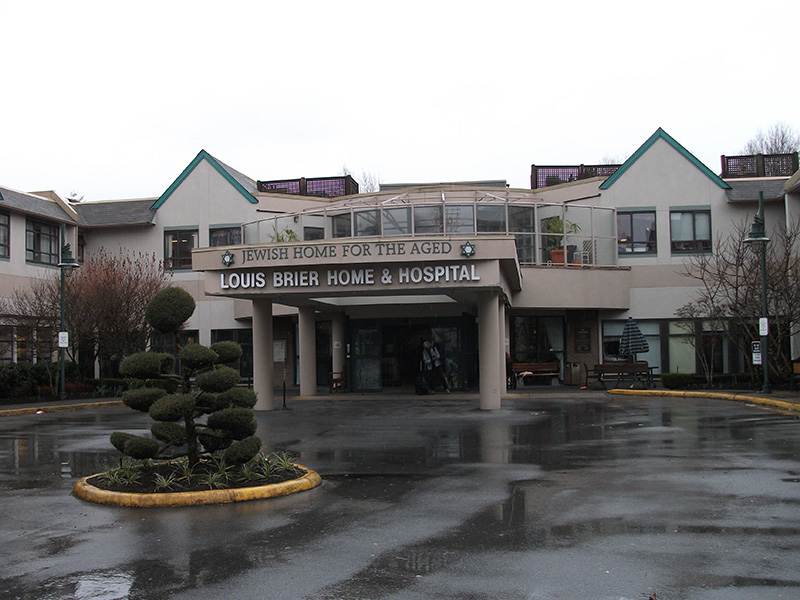Jewish community leaders in Vancouver are planning a new future for the Dr. Irving & Phyliss Snider Campus for Jewish Seniors, one of the only Jewish long-term care facilities in Western Canada.
Established in 1946, it includes the Louis Brier Home & Hospital and the Harry & Jeanette Weinberg Residence, a campus community where 215 seniors live today, 60 per cent of them Jewish. Community leaders acknowledge the aging building no longer supports current standards for health care delivery and technology. It’s been two years since planning began, and the volunteer redevelopment committee is considering two options for a new campus, which they say is at least eight years away.
The first and preferred option would be relocating from the Brier home’s current four-acre property to the site of the nearby Jewish Community Centre of Greater Vancouver, just down 41st Street. By developing a new mixed-use JCC with a seniors home, the JCC’s recreational and cultural programs could enhance health and long-term care for seniors. It would also mean shared construction and operating costs.
READ: UBC STUDENTS REJECT BDS FOR SECOND TIME IN TWO YEARS
The second option is a stand-alone seniors’ campus on a new site close to the JCC. This would have less onerous size and design constraints and a potentially shorter time frame for rebuilding, while maintaining proximity to the JCC for collaborative, intergenerational planning.
Helming the seniors’ campus redevelopment is CEO David Keselman. An Israeli nurse who holds a PhD in public health, Keselman joined the team five months ago after previously participating in hospital redevelopment projects in Ontario and Yellowknife, N.W.T.
“Redevelopment is important because we are reaching the end of our ability – both infrastructurally and operationally – to deliver care that is consistent with current and future health-care delivery trends,” he said.
“There’s a push to keep seniors at home longer today, which means that when they eventually require long-term services, they will be more fragile and require a higher intensity of services. But whenever they need that care, this is the only Jewish health care delivery organization in B.C., and there’s nothing else unless you want to cross the U.S. border. It’s extremely important that the community supports this and that the government realizes that for Jewish people, there’s nowhere else to go if they want to preserve their culture, customs and way of living.”
Rozanne Kipnes, a real estate development consultant, was on the board of the Louis Brier Home for years and has been contracted to help secure the site, its legal structure and financing opportunities. The big difference between the new campus and the current one, she said, is that the old model is based on a tendency to isolate seniors.
“The way we deliver care today is not the way it’s delivered in other countries around the world,” she said. “We want to re-engage and integrate seniors with the community, not isolate them. The government has seen this model tested in other communities and other countries, and they’ve noted that when seniors’ long-term care is handled this way – with an integration of health and social needs – there’s a better quality of life for everybody and less burden on families.”
Kipnes noted that the Jewish community’s founding families “blessed” today’s community with land assets that can be leveraged “to support the redevelopment of an urban seniors, health, wellness and cultural hub within the historical precinct of the Jewish community. We are hopeful it will also provide legacy operating and capital fund replacement to support collaborations going forward.”
Neither she nor Keselman would comment on the value of the land or the estimated cost of building a new campus. Kipnes said that how the land will be “leveraged” is all part of the discussion.
The volunteer redevelopment board is conducting focus groups, market analysis and donor outreach, as well as a study on the number of units that will be needed for residents, as well as current and future services models of care and the facilities needed to support them. The study is expected to be finished next month and will help inform future decisions.
“If we’re successful in this endeavour as a community it will be the largest community endeavour we’ve ever undertaken,” she said.
